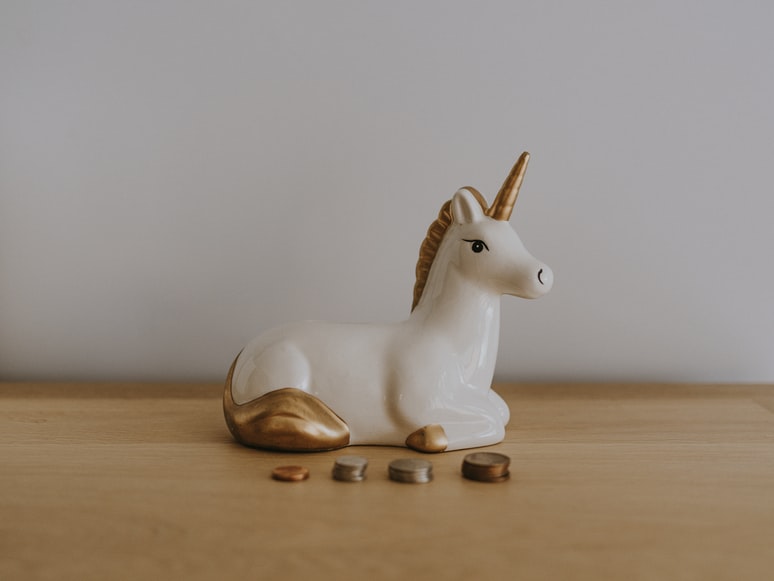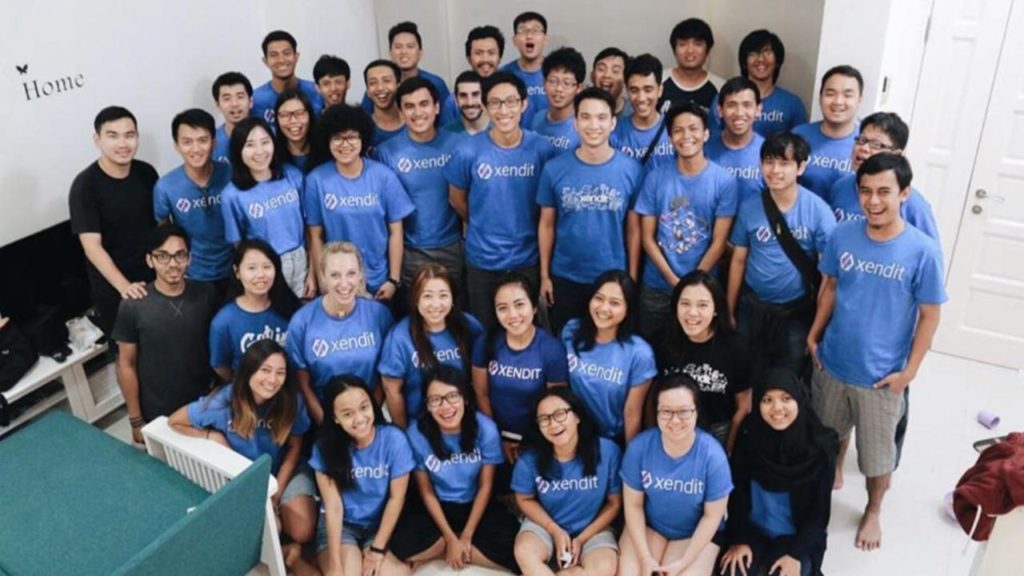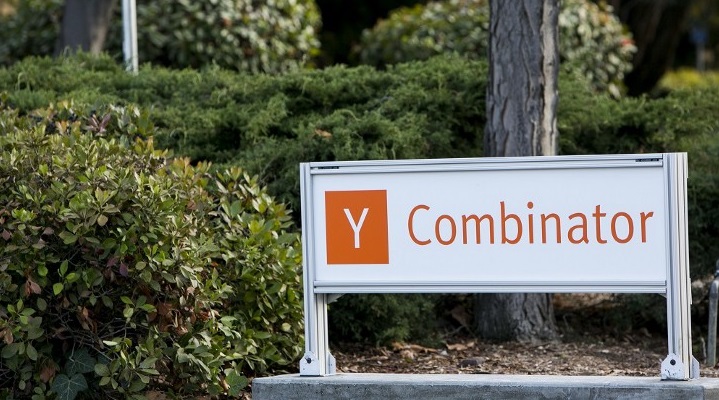Behind Xendit's Unicorn Status, Moses Lo Focuses on Building Company Fundamentals
Through Xendit, Moses is building the infrastructure that will allow other businesses to thrive on his platform
This article is part of DailySocial Mastermind Series featuring innovators and leaders in the Indonesian technology industry to share stories and perspectives.
It is undeniable that work culture is one of the big considerations when someone decides to take a new job at a company. Moses Lo, Founder and CEO of Xendit understands this very well when he works for a company, as well as when starting something new. At Xendit, he always ensures that the organization's fundamentals are met. Moses focused on building the company's internals to better serve external parties.
Moses started this business with and passion, he aspires to create something that will move the market for more than 20 years. It builds payment gateways to simplify and secure business transactions. With this idea, Xendit became the first Indonesian startup to be accepted into the Y Combinator program.
Since childhood, Moses has been exposed to the world of technology. As he grew older, he began to be interested in matters related to finance and banking, coupled with his educational background in technology, he entered the world of fintech. He managed to graduate with the title of best student in his department trade, information systems management, and finance at the University of New South Wales. Continuing his business story, he joined Berkeley to take a master's degree in business. Moses also has experience working with two of the world's best companies, teaching him the essentials of entering the technology industry.
In 2015, at the age of 27, Moses started Xendit. Since then, the company has grown rapidly. This year, Xendit was successfully listed as one of the unicorns in Indonesia. Xendit infrastructure has also been widely used by companies in Indonesia, the Philippines and Southeast Asia.
The following is an excerpt from our discussion with Moses Lo, the number one person at Xendit, about his vision and achievements in the technology industry.
How did you first start pursuing a career in the technology industry?
I've wanted to get into the tech industry since I was 13 or 14 years old. This is solely due to the habit of playing games and assembling computers. So, I always wanted to do something technological. Growing up, I became interested in things related to finance and banking, then majored in Information Systems at University, which eventually led me to fintech. After that, I worked with Boston Consulting Group (BCG) and Amazon for a while before deciding to start my own company.
What was your life like before starting Xendit?
I come from a family of entrepreneurs. One of the reasons I work at BCG is because they are good at teaching good business skills. They taught me how to think, how to present information well, how to talk to people who are older, people who are more senior, and much more important than me. That is a very useful provision.
Later, I also worked at Amazon for a short time. Amazon, compared to other companies, competes very fiercely for every market in which they operate. They are winning e-commerce in the US, their cloud services are everywhere. They move very well in this competitive space and I want to study in a company that is very good at competing. In that short time, I also learned how to build a startup culture scalable and how to build a cohesive team that is highly efficient in running a business.
Xendit is your first company to receive venture capitalist support. What was the initial idea for Xendit like?
When we started Xendit, I saw some things that were happening in other countries. There is a historical gap in which companies that have developed will determine technology and business for the next 15 to 20 years. They set the rules for how technology works. Therefore, I want to go home and build infrastructure and set rules in a way that is good for Indonesia and Southeast Asia for the next 20 years.
This is really a fun thing. I see this as if we are building a paved road where there used to be a dirt road. We are building the infrastructure, so other businesses can grow on top of this platform.
Most of your life journey takes place outside Indonesia. Apart from the potential, what prompted you to build a business focused in this country? What makes you confident you can conquer the Indonesian market?
I have Indonesian blood. Despite not growing up in this country, I have spent most of my adult life here. Actually this is passion I want to build something in Indonesia, and everything supports it. Along the way, I also found several good friends who wanted to grow together. Maybe not conquer, because I don't just think I'm going to win. We just do things we really love. It all starts from passion.
This year, Xendit managed to achieve unicorn status. Did you ever think you could get to this point?

I think “unicorn” or valuation is a weak indicator of any value we can provide to the world, so it would never be unthinkable to be a unicorn.
I tend to think about whether we can create something that scales to have a positive impact on millions of people over the next 10 to 20 years. If that happens, then valuations will surely follow.
I never really cared about status unicorn, and the view is still the same. I think more about whether we are able to provide value to customers, because that is the most important thing. If we are on the right track, everything else will follow. Valuation remains something to think about, but not an indicator of achievement or something to chase. It's just part of the business. I spend most of my time thinking about the product, customers, and team at Xendit.
In your opinion, what is the most essential thing to build sustainability for a company in the technology industry?
It's simple, everything (technology, products, sales) depends on the people working on it. Everything is a reflection. For me, the most important thing is to build an organization that can attract and retain the right people. Products are important, but that function comes from the people who build them, just like sales and customer service.
I spend a lot of time thinking about organizations, the people in them, the culture we live in, the way we make decisions. Once things are done right, everything else, even if I don't control the decision making, will fall into place.
Culture is what attracts and retains workers in the long term. It's not just about table tennis and food, we provide that. The more important things relate to decision making, the team you build, how to get rid of politics in the organization, the recruitment process, compensation, and so on. Culture is built on the answers to these big questions.
While workers are Xendit's most valuable asset, do you have a special approach to the company's recruitment process?
You are familiar with the terms underdog who wants to work hard? Many of us don't come from "something," but we have something to prove to the world and we love working hard. We care deeply about culture and how we build and maintain an organization.
If I had to break it down into parts, the first would be cultural fit. This includes being hardworking, friendly, helpful, without politics or anything smelly underdog. Next, work ethic. We are aware of the fact that many people still don't really understand payments. At Xendit, we provide everything to learn. Apart from that, we also implement a "Trial Day" as part of the recruitment process. This may not exist in most companies. There is a day when we ask you to work together to solve a real issue. Instead of being interviewed, candidates have the opportunity to interview the Xendit team. That way, they will know what it's like to work at Xendit.
 Xendit / Xendit initial team
Xendit / Xendit initial teamWhat kind of challenges have you faced in your business journey so far?
There are many challenges, one of the most difficult is recruitment when the company is still small. Long before you become a big company with a highly reputable business, no one knows who you are. We developed a model where we employ a group of friends. Our first ten employees were actually a team that was given an office to develop the product. By my count, maybe one or two would stay, in fact, the entire team of 12 would join. For the first few years, our initial engineers were playmates. We have a strong goal to employ a circle of friends everywhere, which is the beginning of building our team in several countries.
Xendit develops payment infrastructure and is present in Indonesia and the Philippines. How do you see the market potential and expansion opportunities in the future?
If we look at the payment or payment side merchant, it's still too early. Indonesia's digital payments percentage is still less than 10% of total GDP compared to China or the US which are close to 10-15%. I think we still have huge opportunities, there's still room for huge growth left around every corner.
I see it this way, the opportunities in front of us are greater than the opportunities that have existed so far. This space is very exciting and we are in a very good position to be the first or top second player in Southeast Asia.
I found a page containing your writings. Is it just a hobby or do you have other activities to fill your free time?
In fact, I kept it as a note to myself. Most of what I wrote were things I believed at the time and I wanted to see if they were borne out years later. This is also to measure myself and see if I made the right decision. Another reason is, most people tend to ask me the same questions and the answers are always the same. I thought, if it was written down, people could read it easily and the knowledge could spread more quickly.
At Xendit, we often get together, organize tours, and travel together. We really enjoy each other's company even outside the workplace. It's also how we build connections.
There is a phenomenon in the technology industry, where para founders began to take the role of an investor in the market. What is your view on this? As founders, Is it an obligation or is it an instinct to invest?
In my opinion, the obligation does not have to be to invest, but the obligation is to help. It seems like that's all founders, they are indeed more highlighted by the media. Every employee in a startup company, as well as those who have built a business, have an obligation or at least the desire to continue it. It's great to be able to help new entrepreneurs who are trying to figure out how to raise money, navigate corporate hierarchies, or discover product-market fit.
One thing I observed when I lived in the US was, Silicon Valley, one of the best things that ever existed, was the high quality of freedom of information among its people. Meanwhile in Asia, when someone has a good idea, traditionally, he will keep it to himself based on fear of his idea being imitated or stolen. The sense of necessity to have is high. I want that culture to change to one where we can share more instead of keeping our ideas to ourselves.
The founder's obligation is to help other founders. Investments come as a by-product, I try to invest as little as possible because I love my normal job. I think Investing can be a bit annoying. I often do this for Xendit or on behalf of Xendit. It's a very different approach from other founders.
As the first startup from Indonesia to graduate from the YCombinator program, how do you see the role of accelerators for early stage startups?
We are the first Indonesian company in YCombinator and I am proud of that. YC is especially helpful for early stage companies. I don't know all the accelerators, so I can't speak for every accelerator. One thing I can say, YC is a very effective accelerator. As well as taking care of things dealing with the pressure of hanging out with the best company in the world. Apart from that, YC provides great suggestions, because it is run by people who have been proven in building businesses before. Then, YC has built the best network; well-known companies will attract well-known investors and vice versa.
 Xendit is the first Indonesian startup in the YCombinator program
Xendit is the first Indonesian startup in the YCombinator programWhen it comes to accelerators, I think the most important thing is that entrepreneurs have to ask themselves, 'what do I really need?' and 'does this program provide it?' Not all accelerators are skilled at giving advice and able to get you billions of dollars worth of investors. It all depends on the needs of the founder and the quality of the accelerator.
As an experienced businessman, what can you share about the struggles and battles in the business arena for young people? tech enthusiasts out there?
There are three things I can say. First, find it product-market fit. Most entrepreneurs already have a product in mind and hope they can sell it. However, on the journey to product market fit, more often than not you fall in love with a customer's problem and you feel the urge to solve it. It's one of the best ways to find product-market fit.
Furthermore, the first ten people in the company will set the culture for the next thousand people. I see things happening now in Xendit, that I can no longer control. Because we don't control what someone does on a small team now that we're hundreds of people big. Culture spreads and replicates itself. However, it seems like not enough people are aware of it early on.
Thirdly, in terms of struggle and fighting, look for your mentor. In my case, I have mentors for each category, 2 years in the future, 5 years in the future, and 10 years in the future. I think this is very helpful in business trips. A 2 year mentor can give me an idea of what I should do tomorrow, a ten year mentor can ask me things like “Make sure you make the right big decisions!”, “Which industry do you want to build your startup in?” . Then, a five-year mentor can give you a gap in between the two in terms of plans for the next five years and beyond. I always try my best to maintain these three categories of mentors.
-Original article in English, translated by Kristin Siagian
Sign up for our
newsletter
 Premium
Premium
